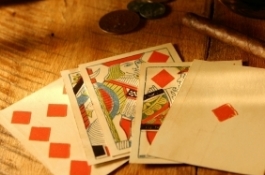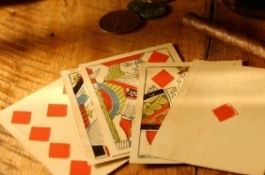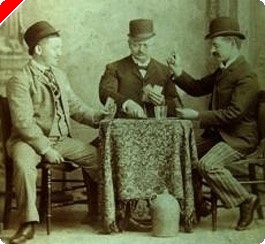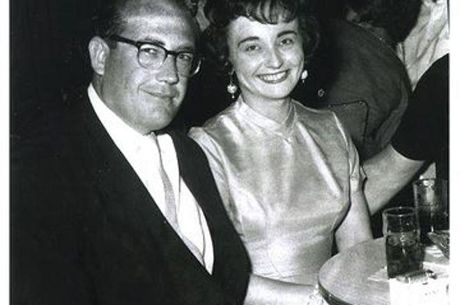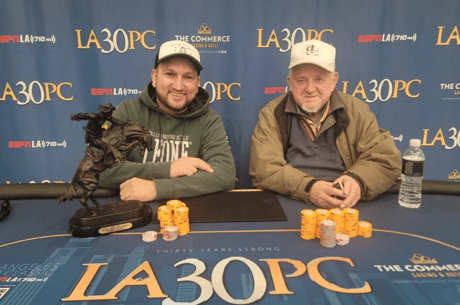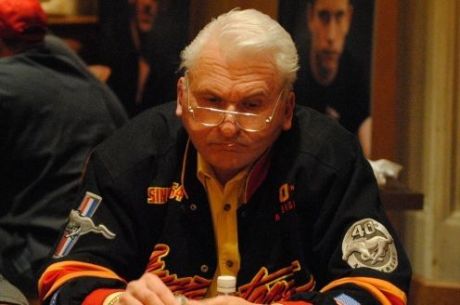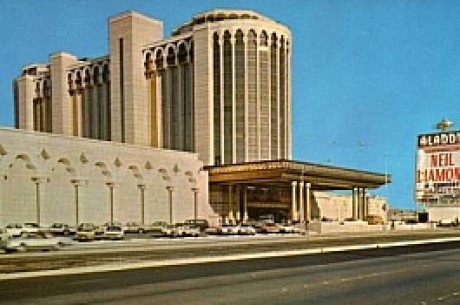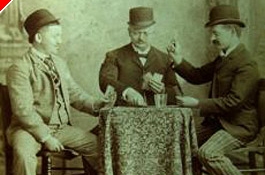From the Poker Vaults: Sam Angel, Part 2
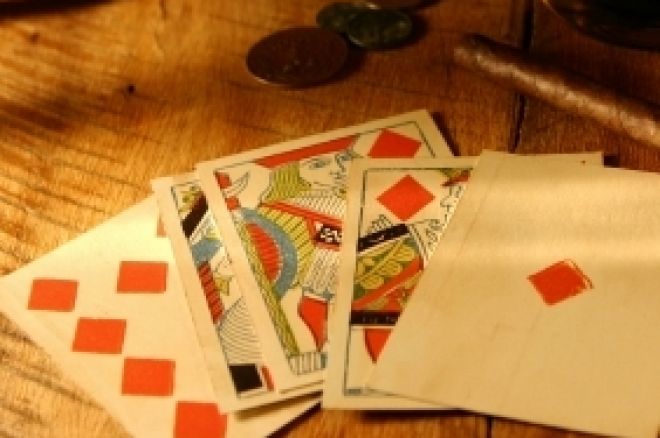
For Part 1 of this flashback into Las Vegas poker history, click here.
By the early 1980s, “Suitcase” Sam Angel’s financial hardship was most readily observed in the quality of jewelry he peddled. Some customers actually complained that the rings he sold them turned their fingers green. It didn’t help his business that his demeanor acquired a rough edge that turned off just as many customers as his innate charm used to attract. In his book You Can Bet on It, author Larry Grossman describes the Angel of that period as “an elephant in a china shop, rampaging through town with the subtlety of an atomic bomb. He can embarrass anyone at any time doing anything. He gets a kick out of pushing people’s buttons and watching their reactions.”
Stories of his vexing behavior became commonplace. Todd Brunson enjoys telling the one about the time he bumped into Angel at the Mirage. More out of politeness than genuine interest, Brunson asked him, “How you doing, Sam?” Angel’s expletive-filled response described how he was about to get evicted from his longtime home in the Regency Towers.
When Brunson asked why, Angel responded, “I paid rent for seven years straight. Then when I missed two, [the landlord] goes crazy and wants to throw me out on the streets after what a good tenant I been!”
Brunson was confused. “He’s throwing you out after you missed two months?”
“No, two years,” Angel responded, as if the landlord were somehow to blame.
Yet even as his bankroll grew thinner Angel still insisted upon acting like the high roller he’d once been. One night at the Golden Nugget in 1986 he told David Grey, “There’s going to be a great $50/100 game later. I’ll stake you in it after we eat at the steakhouse. Come on, I got a comp.” Grey didn’t need to be staked but went along with Angel’s plan anyway. As they were walking to the poker room after dinner, Angel turned to Grey and said, “Why should I stake you when Steve Wynn will?” and with that he threw $2,000 onto the craps table and promptly lost it all. Trying to win his money back, he made a series of bets for increasingly high stakes, none of which he won.
Grey attempted to console him. “Don’t worry about it, Sam.”
Angel glared at him. “You think I’m worried about you? I’m losing over $200,000 to these cheating sons of bitches.”
For a man who used to count all of Las Vegas as his turf, Angel’s world began growing smaller and smaller when his objectionable behavior started getting him banned from various venues around town. In one such instance he was told never to return to one of his favorite restaurants after he grabbed an apple and stuck it in the pocket of his omnipresent green jacket. When one of the waitresses confronted him, Angel went off on her. Upon his return a week later, the hostess informed him that he was no longer welcome to eat there. Angel pled his case to the manager, who tried to accommodate both parties, ruling that Angel could still eat there but only on the waitress’s day off. “Come back on Tuesday,” he said. Angel was furious. “Come back on Tuesday?” he yelled on his way out the door. “What am I, a roach?”
It wasn’t the first place Angel had been kicked out of, and it certainly wouldn’t be the last. “Over the years, I’ve been booted from all the joints, all for penny ante stuff,” he once confessed. “I know I get loud sometimes, especially when I drink, but I don’t hurt nobody. The only person I ever hurt was me.”
Forced to sell second-rate jewelry, Angel had to work twice as hard to make half the money he was earning before. In this new era everyone was fair game for a hustle. One night in the early 1990s Angel was hanging out in the sportsbook of Little Caesars when the Russian national basketball team entered the casino. They’d just lost to UNLV in an exhibition game, and Angel walked right up to them and got in their faces. “How in the hell did you guys lose to a college team?” he shouted. Despite the harsh introduction and the language barrier dividing them, Angel and the Russian players were soon trading friendly barbs. Once he’d captured their attention, his next move was predictable — he pulled some jewelry out of his suitcase and tried to sell it to them.
Despite spending the majority of his life in smoke-filled sportsbooks and cardrooms, subsisting mostly on a diet of hot dogs and Heinekens, Angel managed to stay in the thick of the action well into his 80s. When a huge fight broke out in the Bellagio’s poker room one night in 2000, Angel was right there in the middle of it. The shift supervisor, Pete Popovich, quickly broke up the fight, but after he’d separated the combatants he felt a hand on his foot.
“I was afraid I was stepping on some person,” he said, “but when I looked down there was 80-year-old Sam crawling on the floor. He was frantically picking up all the chips that he could that had been knocked off the table and was sticking them in his pocket. I was standing on a few, and he was like a mother bear trying to get to her cubs.” After order was restored, the inevitable verdict was delivered: Angel could add one more casino to the long list of establishments in Las Vegas where he was no longer welcome.
Suitcase Sam Angel, a personality like no other, died on March 21, 2007. He was 86 years old.
Get your PokerStars marketing code from PokerNews.com - The number One Poker Source on the internet.

